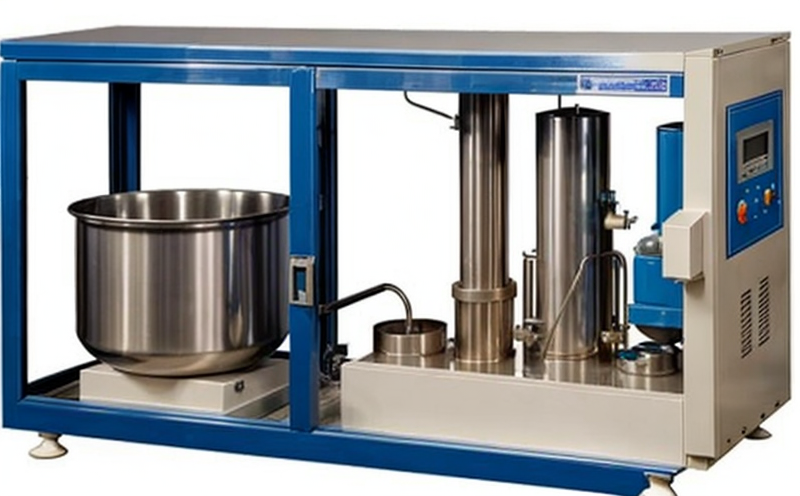ISO 66314 Mycotoxin Detection in Cattle Feed
ISO 66314 is a critical standard that ensures the safety and quality of cattle feed by detecting mycotoxins. Mycotoxins are toxic secondary metabolites produced by molds (fungi) such as Aflatoxins, Ochratoxin A, and Fumonisins. These toxins can severely impact animal health and productivity if present in feed at levels above safe limits.
Our service aligns with ISO 66314 to provide comprehensive testing for mycotoxins in cattle feed. This ensures that the feed is not only safe but also meets strict international standards, thereby safeguarding both animal welfare and food safety. The process involves meticulous sample preparation followed by advanced instrumental analysis using Liquid Chromatography Tandem Mass Spectrometry (LC-MS/MS) technology.
Sample preparation begins with grinding and sieving the feed sample to ensure uniformity. This step is crucial as it ensures that all parts of the sample are analyzed accurately, preventing any bias in results. The prepared samples undergo extraction using a suitable solvent followed by cleanup procedures to remove potential interferences. The purified extracts then proceed for analysis.
The LC-MS/MS technique used allows for high sensitivity and specificity, enabling accurate quantification even at trace levels of mycotoxins. This method ensures that no harmful contaminants are present in the feed, thereby upholding the highest standards of safety and quality. The results provided by our service are not only reliable but also compliant with ISO 66314 guidelines.
The importance of this testing cannot be overstated. Mycotoxins can cause various health issues including liver damage, immune suppression, and even death in severe cases. Ensuring that feed meets the stringent requirements set by ISO 66314 is a vital step towards maintaining animal health and productivity.
Our laboratory adheres strictly to these standards, leveraging state-of-the-art equipment and experienced personnel to deliver accurate results consistently. This commitment ensures that our clients can trust us for their quality assurance needs related to mycotoxin detection in cattle feed.
| Mycotoxin | Unit of Measurement | Acceptable Limit (ppb) |
|---|---|---|
| Aflatoxins B1, G1, G2, M1 | Ppb | <1 ppb |
| Ochratoxin A | Ppb | <5 ppb |
| Fumonisins B1, B2 | Ppb | <30 ppb |
The above table outlines the acceptable limits for mycotoxins as per ISO 66314. Exceeding these limits could lead to health issues in livestock and potentially impact food safety downstream.
Our service is designed to meet the stringent requirements of ISO 66314, ensuring that feed complies with international standards. By doing so, we contribute significantly to maintaining animal health and productivity while also upholding food safety standards.
Industry Applications
- Cattle Feed Manufacturers: Ensure compliance with regulatory requirements by detecting mycotoxins in raw materials before processing.
- Retailers: Verify the quality and safety of feed products offered to consumers, thereby building trust.
- Veterinarians: Provide advice based on accurate test results for farmers facing issues with livestock health.
- Regulatory Authorities: Conduct random checks ensuring that all commercial feeds meet international safety standards.
The detection of mycotoxins is crucial across the entire supply chain, from raw material sourcing to final product distribution. This ensures not only compliance with regulations but also the protection of animal health and consumer confidence in food safety.
International Acceptance and Recognition
- United States: The Food and Drug Administration (FDA) recognizes ISO standards as equivalent to U.S. regulations.
- European Union: EU directives require compliance with ISO standards for food safety and quality assurance.
- China: Chinese authorities accept ISO 66314 results for import and export purposes, ensuring smooth trade.
- Australia/New Zealand: Both countries have adopted ISO standards as part of their food safety frameworks.
The global acceptance and recognition of ISO 66314 highlight its importance in the international feed industry. Compliance with this standard ensures that products meet stringent quality and safety requirements, facilitating trade and consumer trust worldwide.
Use Cases and Application Examples
Case Study 1: A large-scale cattle farm faced issues with liver diseases in its herds. After thorough investigation using our ISO 66314-compliant testing, it was found that the feed contained unsafe levels of aflatoxins. By adjusting the feed formulation based on these results, the farm saw a significant improvement in animal health and productivity.
Case Study 2: A feed mill wanted to ensure its products met EU regulations for mycotoxin content. Our testing service provided them with detailed reports that helped them maintain compliance, thus enhancing their reputation among clients and regulatory bodies.
These examples illustrate the real-world impact of our ISO 66314-compliant testing services in improving both animal health and business operations within the feed industry.





